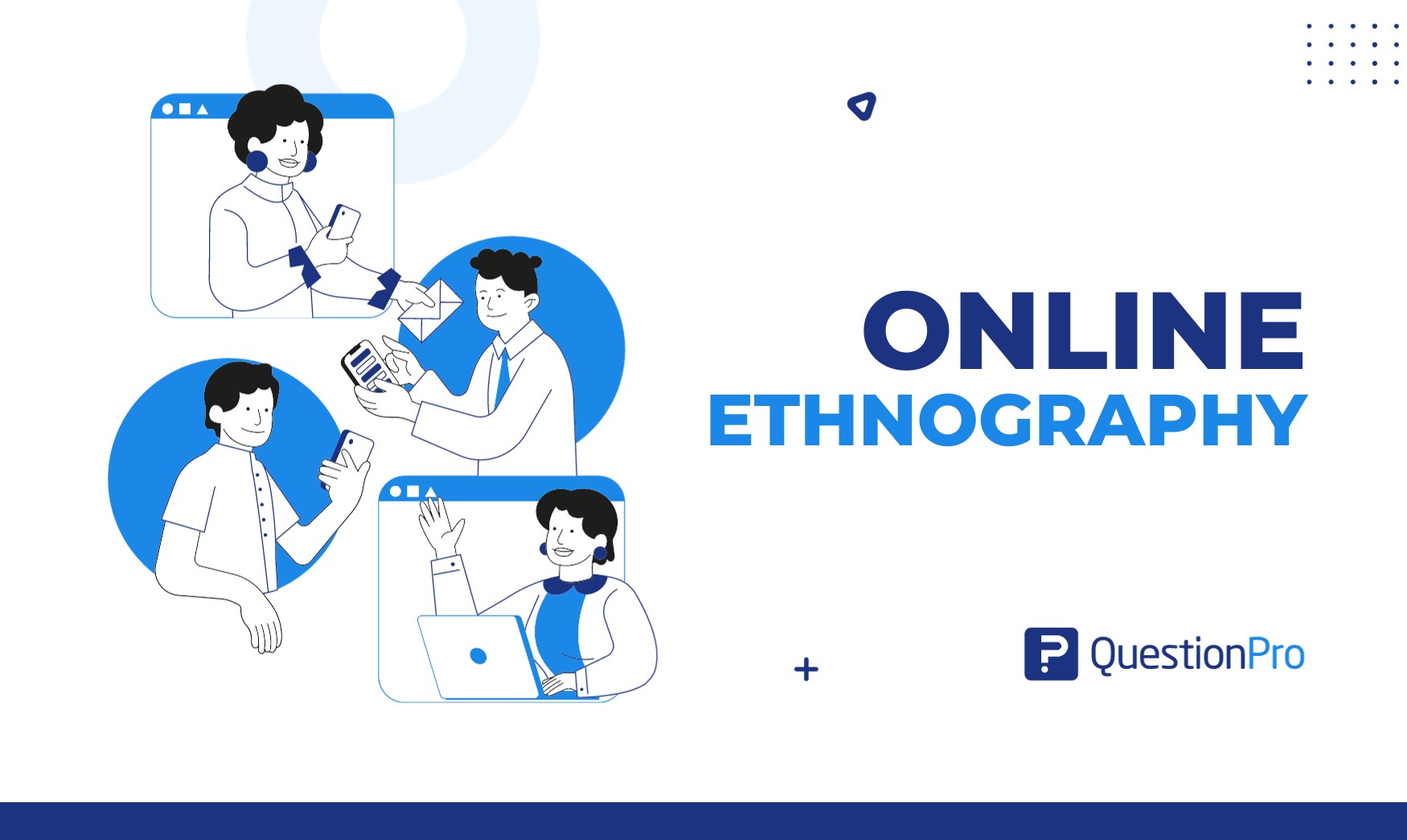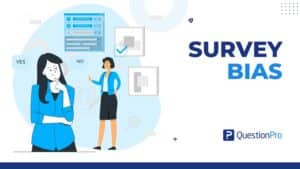
Imagine a world where hashtags are as important as handshakes, and avatars represent virtual communities. Traditional ethnography is adapting to this digital era. Welcome to online ethnography—a new frontier for anthropologists and researchers exploring the evolving digital landscape.
In this journey, we explore online ethnography, taking you through the intricacies of digital cultures, communities, and behaviors. Think of it as a guidebook to 21st-century anthropological adventures.
Forum threads replace field notes, and cultural rituals unfold in the world of ones and zeros. Join us as we shed light on online ethnography’s nature, methods, benefits, and challenges. It’s time for a cybernetic safari where languages are not just spoken or written but encoded in the fabric of the internet.
What is Online Ethnography?
Online ethnography is a digital upgrade to traditional ways of studying cultures. In the olden days, researchers would dive into real-world communities to learn about their behaviors. But now, online ethnography happens in virtual spaces – on the internet and digital platforms.
So, instead of physically being in a community, researchers jump into online communities, forums, and social media platforms. They watch and analyze how people interact in these virtual spaces. It’s like exploring a digital world where cultural habits and social dynamics play out in the language of ones and zeros.
This method involves different research tricks, like hanging out in online spaces, analyzing what people share, doing virtual tours, and even chatting with folks in digital settings. Researchers use digital tools to peek into online worlds, talk to people in virtual settings, and figure out how social networks work in digital communities.
Why bother with online ethnography? Well, it helps researchers find hidden patterns, understand the digital age, and learn about global communities without being tied down by physical borders. It’s quick, cost-effective, and ethical – making it a handy tool for those exploring the mysteries of the virtual world in fields like anthropology and sociology.
Methods of Online Ethnography
Online ethnography involves adapting traditional digital ethnographic research methods and other research methods to the digital environment. Here are several key techniques commonly used in online ethnography:
1. Participant Observation
Research participants actively participate as members in online communities, forums, or social media platforms. This involves engaging in discussions, commenting, and observing interactions to gain an insider perspective.
2. Content Analysis
Analyzing qualitative research like textual, visual, or audio content shared within online platforms. Researchers examine posts, comments, images, videos, or other relevant content to identify patterns, themes, and cultural nuances.
3. Interviews and Surveys
Conducting virtual interviews or surveys with members of online communities to gather in-depth information. This method allows researchers to explore individual experiences, opinions, and perspectives.
4. Netnography
A specialized form of online ethnography focused on studying consumer behavior and online communities related to brands, products, or services. Netnography often analyzes online reviews, discussions, and interactions around a specific brand or market.
5. Digital Ethnography
Utilizing digital tools to study online spaces. This may include screen recording, social network analysis, and other digital methods to observe and document online behavior.
6. Archival Research
Examining archived content within online platforms to understand the historical context and trace the evolution of discussions or trends over time. This method is beneficial for longitudinal studies.
7. Autoethnography
Researchers engage in self-reflection and personal exploration within online communities. Autoethnography allows researchers to understand their own experiences and biases, contributing to a more reflexive and nuanced study.
8. Virtual Ethnographic Tours
Exploring virtual spaces, such as online gaming environments or virtual worlds and virtual reality platforms, to observe and document social interactions, behaviors, and cultural practices within these digital realms.
9. Ethnographic Interviews in Virtual Settings
Conducting interviews within virtual settings, such as online gaming platforms or virtual conferences. This method allows researchers to explore how individuals interact in digital spaces and the cultural dynamics at play.
10. Multi-Sited Ethnography
Extending the study across multiple online platforms or communities to understand the interconnectedness and influence between different digital spaces.
11. Social Network Analysis
Examining the structure and dynamics of social networks within online communities. This method helps researchers understand online community members’ relationships, connections, and influence patterns.
12. Ethical Considerations and Reflexivity
Incorporating ethical considerations into the research process and maintaining reflexivity by acknowledging the researcher’s positionality and potential biases online.
Benefits of Online Ethnography
As a research methodology, online ethnography has many benefits that make it a valuable tool for studying cultures, communities, and behaviors in the digital realm. Here are some key advantages:
- Global Reach: Online ethnography allows researchers to study diverse communities and cultures from around the world without the limitations of geographical boundaries.
- Real-time Insights: The immediacy of online interactions provides researchers with real-time data, allowing them to capture evolving trends and behaviors.
- Cost-Effectiveness: Conducting research online eliminates the need for extensive travel, reducing costs associated with traditional ethnography.
- Anonymity and Accessibility: Participants often feel more comfortable sharing authentic experiences online, leading to more open and honest responses.
- Rich Data Sources: The vast amount of data generated online, including text, images, and multimedia, offers a rich source for analysis and interpretation.
- Ethical Considerations: Online ethnography provides a platform for ethical research, as researchers can navigate cultural sensitivity by engaging with communities on their terms.
Challenges and Considerations
While online ethnography offers numerous advantages, researchers must also consider the ethical implications, potential biases, and the dynamic nature of virtual communities. Here are some key aspects to keep in mind:
1. Ethical Concerns
- Informed Consent: Obtaining informed consent from online participants can be challenging. Some platforms may have specific terms of service, but it’s important to ensure participants understand the research and voluntarily agree to participate.
- Anonymity and Privacy: Protecting the privacy and anonymity of participants is crucial. Researchers must be mindful of the information participants share and take measures to minimize the risk of identification.
2. Digital Divide
- Access Disparities: Not everyone can access the internet or digital devices equally. This can lead to a biased sample, excluding specific demographics and limiting the generalizability of findings.
- Technological Literacy: Participants may vary in their level of technological literacy, which can affect their online behaviors. Researchers should consider these differences when interpreting data.
3. Dynamic Nature of Online Spaces
- Rapid Changes: Online communities and platforms evolve quickly. A community’s cultural context, norms, and dynamics can change rapidly, requiring researchers to adapt their methods and perspectives accordingly.
- Platform-Specific Nuances: Each online platform has its culture, language, and norms. Researchers must familiarize themselves with these nuances to accurately interpret and contextualize the data.
4. Data Quality and Authenticity
- Misrepresentation: Participants may present themselves differently online, creating a potential gap between their online persona and offline identity. Researchers need to be aware of the potential for misrepresentation.
- Bots and Trolls: The presence of automated accounts, trolls, and fake profiles can complicate data interpretation and introduce noise into the analysis.
5. Long-Term Engagement
- Building Rapport: Establishing trust and rapport with online communities may take time. Researchers should invest in building relationships to gain deeper insights into the community dynamics.
- Community Dynamics: Understanding the long-term dynamics of online communities requires ongoing engagement. Researchers must be mindful of changes over time and consider the impact of their presence on the community.
6. Analysis Challenges
- Volume of Data: The vast amount of data generated online can be overwhelming. Researchers need effective strategies for data collection, management, and analysis.
- Subjectivity: Interpretation of online interactions can be subjective. Researchers must acknowledge their biases and be transparent about their perspectives in the analysis.
7. Legal Considerations
- Intellectual Property: Researchers should be aware of and respect intellectual property rights, such as copyright issues related to online content.
- Jurisdictional Issues: Online interactions can involve participants from different legal jurisdictions, complicating ethical and legal considerations.
Conclusion
Online ethnography represents a paradigm shift in the research world, offering a unique lens through which to explore the intricate tapestry of online communities. Its methods, ranging from participant observation to digital archival research, empower researchers to uncover hidden patterns and understand the complexities of the digital age.
The benefits, including global reach, real-time insights, cost-effectiveness, and ethical considerations, position online ethnography as a valuable tool for those seeking to unravel the mysteries of the virtual world.
As digital technology continues to shape how we connect and communicate, virtual ethnography stands as a beacon, guiding researchers into the heart of the digital experience.
QuestionPro’s research suite facilitates Online Ethnography by providing a platform for immersive, digital engagement with participants. Researchers can gain rich insights into social and cultural behaviors through surveys, discussions, and multimedia sharing.
The platform enables real-time interactions, participant observation, and in-depth analysis, fostering a comprehensive understanding of diverse perspectives within an online community.







